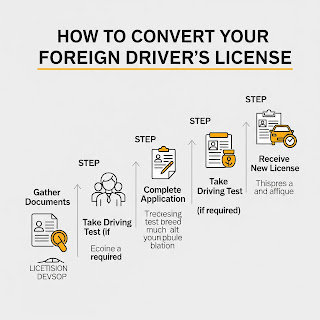Banking and Managing Money in Saudi Arabia: A Complete Guide for Expats
Banking and Managing Money in Saudi Arabia: A Complete Guide for Expats
Moving to a new country comes with many challenges—and one of the most important is how to manage your money. Whether you’re working in Saudi Arabia or relocating with family, understanding the banking system can help you stay financially secure and avoid unnecessary stress.
This guide covers everything an expat needs to know: how to open a bank account, send money home, use ATMs, deal with mobile banking, and handle everyday financial matters with ease.
---🏦 Types of Banks in Saudi Arabia
Saudi Arabia has a modern and well-regulated banking sector. You’ll find both local and international banks offering a range of services, including savings accounts, salary accounts, investment services, and Islamic banking products.
Popular Banks Among Expats:
- Al Rajhi Bank – One of the largest Islamic banks in the world
- National Commercial Bank (NCB / SNB) – Popular for salary accounts
- Riyad Bank – Known for good digital banking tools
- SABB (Saudi British Bank) – Good for expats working with international employers
- Bank AlJazira, Banque Saudi Fransi, Alinma Bank – Other commonly used banks
📝 How to Open a Bank Account in Saudi Arabia
Opening a local bank account is usually straightforward, especially if you're sponsored by an employer. Most banks offer dedicated “expat” account services.
What You’ll Need:
- Valid Iqama (residency permit)
- Passport with visa stamp
- Letter from employer (salary certificate or job offer)
- Mobile number registered under your Iqama
Most banks also offer the option to open accounts online through their app or website. However, visiting a branch is often quicker and smoother for expats setting up for the first time.
---💳 Types of Bank Accounts
Banks in Saudi Arabia typically offer the following account types:
- Savings Account: Ideal for storing funds and earning modest interest
- Current/Salaried Account: For receiving your salary and making regular transactions
- Joint Account: Usually available for married couples
- Children’s Account: For savings and allowances
Many accounts come with debit cards and online banking by default.
---📱 Online and Mobile Banking
Saudi banks offer robust digital banking systems. Almost every bank has a dedicated mobile app with English-language support.
With mobile banking, you can:
- Pay utility bills (electricity, water, phone)
- Transfer money locally and internationally
- Recharge mobile phones
- Monitor transactions and balance in real-time
For daily life in Saudi Arabia, mobile banking is incredibly convenient. Apps like **Mada Pay**, **STC Pay**, and **Apple Pay** are widely used for contactless payments.
---💵 Using ATMs and Cards
ATMs are available almost everywhere—from malls and hospitals to gas stations and grocery stores. They support both Arabic and English languages.
Key Points:
- Most ATMs accept international Visa/MasterCard for cash withdrawal
- Daily withdrawal limit is typically around SAR 5,000
- Mada debit cards are widely accepted across Saudi Arabia
Note: Foreign cards may work in ATMs but might not be accepted at point-of-sale (POS) machines.
---🌍 Sending Money Abroad
Most expats in Saudi Arabia regularly send money to their home countries. Thankfully, remittance services are easy, fast, and reliable.
Popular Options:
- Bank transfers: Usually done via online banking
- Western Union or MoneyGram: Available at banks and standalone branches
- TeleMoney (Al Rajhi) and Enjaz (Bank Albilad) – fast and affordable remittance services
- STC Pay and Payoneer: Good for online freelancers and small transfers
Tip: Always compare exchange rates and transfer fees to get the best deal.
---📑 Taxes and Financial Rules
Saudi Arabia does not impose income tax on salaries. However, there are other taxes you should be aware of:
- VAT (Value Added Tax): Currently 15%, applied to most goods and services
- Zakat: Only applicable to Saudi citizens and businesses
Expats are encouraged to declare any foreign income in their home countries if required by their own tax laws.
---🏠 Managing Household Finances
Daily expenses in Saudi Arabia vary depending on your location and lifestyle. Managing money wisely is important to save and plan your future.
Average Monthly Expenses (for a single person):
- Rent (1 BHK apartment): SAR 1,500 – 2,500
- Utilities: SAR 300 – 500
- Groceries: SAR 600 – 1,000
- Transportation: SAR 200 – 400
Many expats choose to live modestly and send a portion of their salary back home. Budgeting apps like **YNAB**, **Wallet**, and **Spendee** can help you track your spending.
---🧠 Tips for Smart Money Management in Saudi Arabia
- Use your mobile banking app to monitor your finances daily
- Open a savings account to build your emergency fund
- Set financial goals (monthly savings, annual remittance)
- Avoid unnecessary credit card usage
- Stay informed about bank charges and ATM withdrawal fees
📌 Final Thoughts
Banking in Saudi Arabia is relatively simple and secure. With a little planning and awareness, you can manage your finances smoothly and focus on enjoying your life abroad.
Need help with other aspects of expat life in the Kingdom? Read our popular post on Healthcare in Saudi Arabia for Expats.
— My Life in Saudi




Comments
Post a Comment